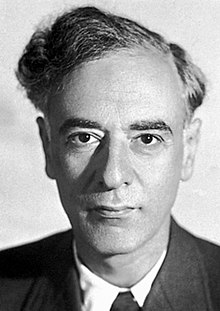Lev Davidovich Landau (1908–1968): The Nobel-Winning Physicist Who Pioneered Quantum Theory, Superfluidity, and Modern Theoretical Physics
Lev Davidovich Landau, one of the most brilliant theoretical physicists of the 20th century, was a transformative figure whose contributions reshaped multiple branches of physics. Born on January 22, 1908, in Baku, Azerbaijan (then part of the Russian Empire), Landau displayed extraordinary intellectual prowess from an early age. His work spanned quantum mechanics, condensed matter physics, superfluidity, superconductivity, and plasma physics, earning him the Nobel Prize in Physics in 1962. Despite enduring personal and political hardships, including imprisonment during Stalin's purges, Landau's relentless pursuit of scientific truth left an indelible mark on modern physics.

Landau’s early education was marked by rapid advancement. By the age of 13, he had mastered calculus, and at 14, he enrolled at Baku State University, studying chemistry and physics before transferring to Leningrad State University. There, he immersed himself in the burgeoning field of quantum mechanics, which was revolutionizing physics in the 1920s. His early contributions included groundbreaking work on quantum theory and statistical mechanics, foreshadowing the depth of his future research.
In 1929, Landau traveled to Europe, collaborating with leading physicists such as Niels Bohr, Werner Heisenberg, and Wolfgang Pauli. This period profoundly influenced his scientific approach, blending rigorous mathematical formalism with deep physical intuition. Upon returning to the Soviet Union, he established the Theoretical Physics Department at the Kharkiv Institute of Physics and Technology, where he mentored a generation of physicists who would later become known as the "Landau School." His pedagogical influence was immense, culminating in the creation of the famous Course of Theoretical Physics, co-authored with Evgeny Lifshitz, which remains a foundational text for physicists worldwide.
One of Landau’s most significant contributions was his theory of superfluidity in liquid helium. In 1938, he developed a theoretical framework explaining why helium-4, when cooled near absolute zero, flows without viscosity—a phenomenon first observed by Pyotr Kapitsa. Landau’s theory introduced the concept of quantized vortices and phonon-roton excitations, providing deep insights into quantum fluids. This work not only earned him the Nobel Prize but also laid the groundwork for later discoveries in Bose-Einstein condensates and quantum hydrodynamics.
Landau also made pioneering advances in superconductivity. His 1950 Ginzburg-Landau theory, developed with Vitaly Ginzburg, described superconductivity using a macroscopic wave function and became instrumental in understanding type-II superconductors. This theory later contributed to the development of the BCS theory of superconductivity, which earned John Bardeen, Leon Cooper, and John Schrieffer the Nobel Prize in 1972.
Beyond condensed matter physics, Landau contributed to nuclear and particle physics, astrophysics, and plasma physics. His work on Landau damping—a phenomenon where waves in a plasma lose energy to particles—became crucial in fusion research and space physics. Additionally, his classification of phase transitions (Landau theory) remains a cornerstone of statistical mechanics.
Landau’s life was not without tragedy. In 1938, during Stalin’s Great Purge, he was arrested on false charges of espionage and spent a year in prison before Kapitsa’s intervention secured his release. The ordeal left him physically and mentally scarred, yet he continued his scientific work with undiminished brilliance. In 1962, he suffered a near-fatal car accident that left him partially disabled, ending his active research career. He died six years later, on April 1, 1968, but his legacy endures through his theories, students, and textbooks.
Lev Landau was more than a physicist; he was a scientific visionary whose work transcended disciplinary boundaries. His ability to unify complex phenomena under elegant theoretical frameworks set a standard for future generations. Today, his name lives on in concepts like Landau levels (quantized electron orbits in magnetic fields) and the Landau-Lifshitz equations (describing magnetic dynamics). His relentless curiosity, combined with his uncompromising intellectual rigor, cemented his place among the greatest physicists in history.
0 Comment to "Lev Landau: The Revolutionary Physicist Who Redefined Modern Science"
Post a Comment